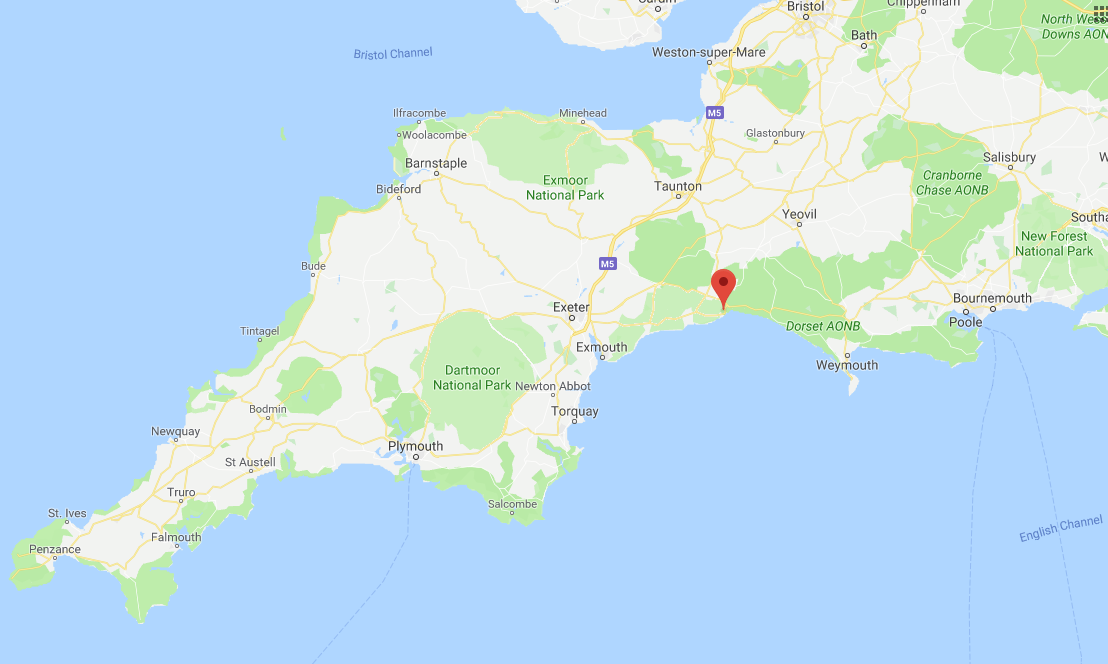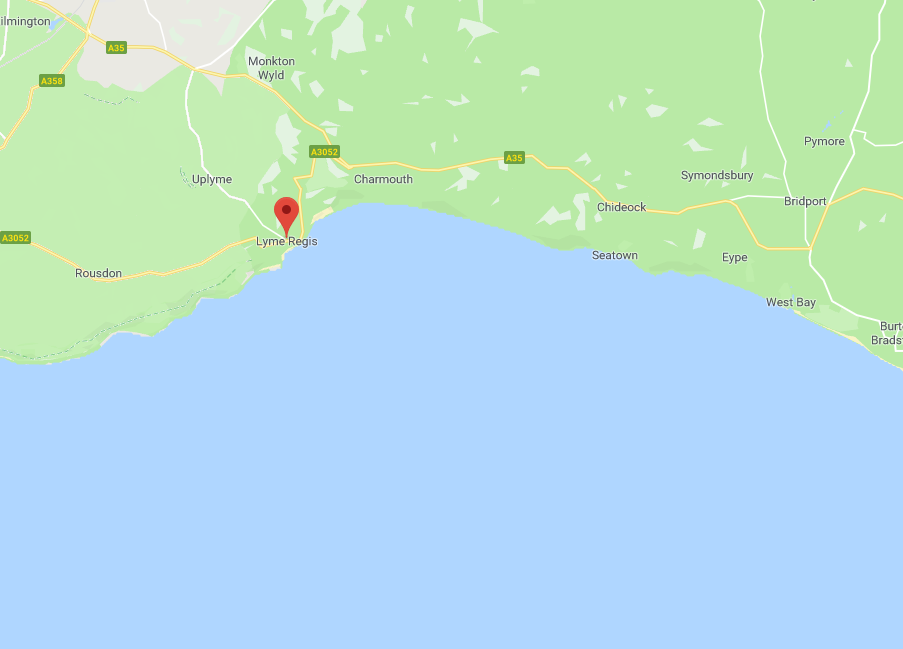The key to understanding it is by considering the wider context.
Your quotation begins by talking about Lyme Bay, a coastal area of Lyme Regis. It even describes Lyme Bay as "that largest bite from the underside of England’s outstretched southwestern leg" So, "inbite" apparently refers to the bay. As a coastal bay is a recess in the coastline, it would seem as if a "bite" has been taken out of the land. This is further evidenced by the fact that the text goes on to say that Lyme Regis is eponymous with the aforementioned Lyme Bay - obviously the bay takes its name from the inland area nearby.
Admittedly I have never heard this word used before - unless someone can show evidence of it being commonly used to describe a bay like this I would suggest that the author creatively made a compound word of "in" and "bite" and then used this as a metaphor to describe the shape of the coastline. Don't be surprised that it isn't found in dictionaries - English is very fluid in the way it allows for compound words to be used colloquially. For example, in the region of England in which I live many people refer to an alleyway between two roads as a "cut-through", yet I can't find this in any dictionary either.
The definite article "the" is used because, having established that the subject is Lime Bay, it is a specific subject. If the author had not been so creative and simply referred to it as what it is - a bay - he would still have written "the bay" because to use the indefinite article "a bay" could refer to any bay. We always use the definite article when referring to something specific.


